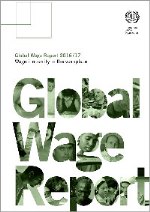Published on Thu, 2017-01-26 18:52
This year, our organization, Inclusive Development International, launched the Follow the Money initiative – a new tool to fight land grabs and other corporate abuses. It’s a simple idea, but we believe it has the potential to be a game-changer. Every year, more than 15 million people are forcibly displaced from their land, housing and the natural resources they depend upon to make way for large-scale agro-industrial plantations, hydropower dams, mines and power plants. Rarely are they compensated for what they have lost. |
Published on Thu, 2017-01-26 16:27
In various remarks in the last few days, Argentine government officials have insisted upon blaming foreign-born people for drug trafficking in our country. Security Minister Patricia Bullrich used skewed and decontextualized statistics and stigmatizing assertions to try to justify a toughening of the nation’s immigration policy, which the government has been announcing for several weeks. |
Published on Mon, 2016-12-19 14:07
In an unprecedented and historic move, the Sixth Committee of the UN General Assembly recently granted observer status to the International Chamber of Commerce (ICC). The resolution was submitted by France, Albania, Colombia, the Netherlands and Tunisia and was adopted during the seventy-first session of the General Assembly. The resolution sets out the ICC’s position as observer in the General Assembly from 1 January 2017 on. |
Published on Fri, 2016-12-16 12:59
The "refinement" of the SDG indicators by experts can dilute the goals agreed by the governments, said civil society representatives as preparations advance to the 48th session of the UN Statistical Commission in March 2017. For example, under target 10.5, to improve the regulation and monitoring of global financial markets, the proposed indicator #10.5.1: “Adoption of global financial transaction tax (Tobin tax)” was changed to “Financial Soundness Indicators”, developed by the IMF. |
Published on Thu, 2016-12-15 15:30
Global real wage growth has decelerated since 2012, falling from 2.5 per cent to 1.7 per cent in 2015, its lowest level in four years, the International Labour Organisation (ILO) has said. In its latest Global Wage Report 2016/17, the ILO said if China, where wage growth was faster than elsewhere, is not included, real wage growth has fallen from 1.6 per cent in 2012 to 0.9 per cent in 2015. "The United Nations 2030 Agenda for Sustainable Development identified decent work for all women and men, and lower inequality, as among the key objectives of a new universal policy agenda. The issues of wage growth and wage inequality are central to this agenda," said ILO Director-General Guy Ryder, in a preface to the report. |
SUSCRIBE TO OUR NEWSLETTER






